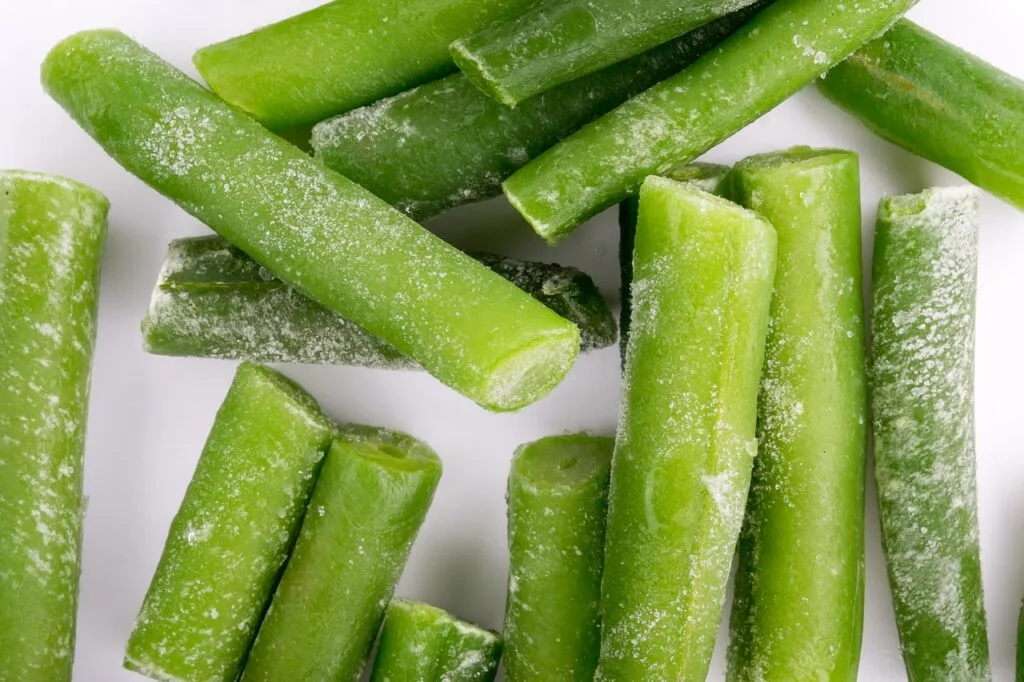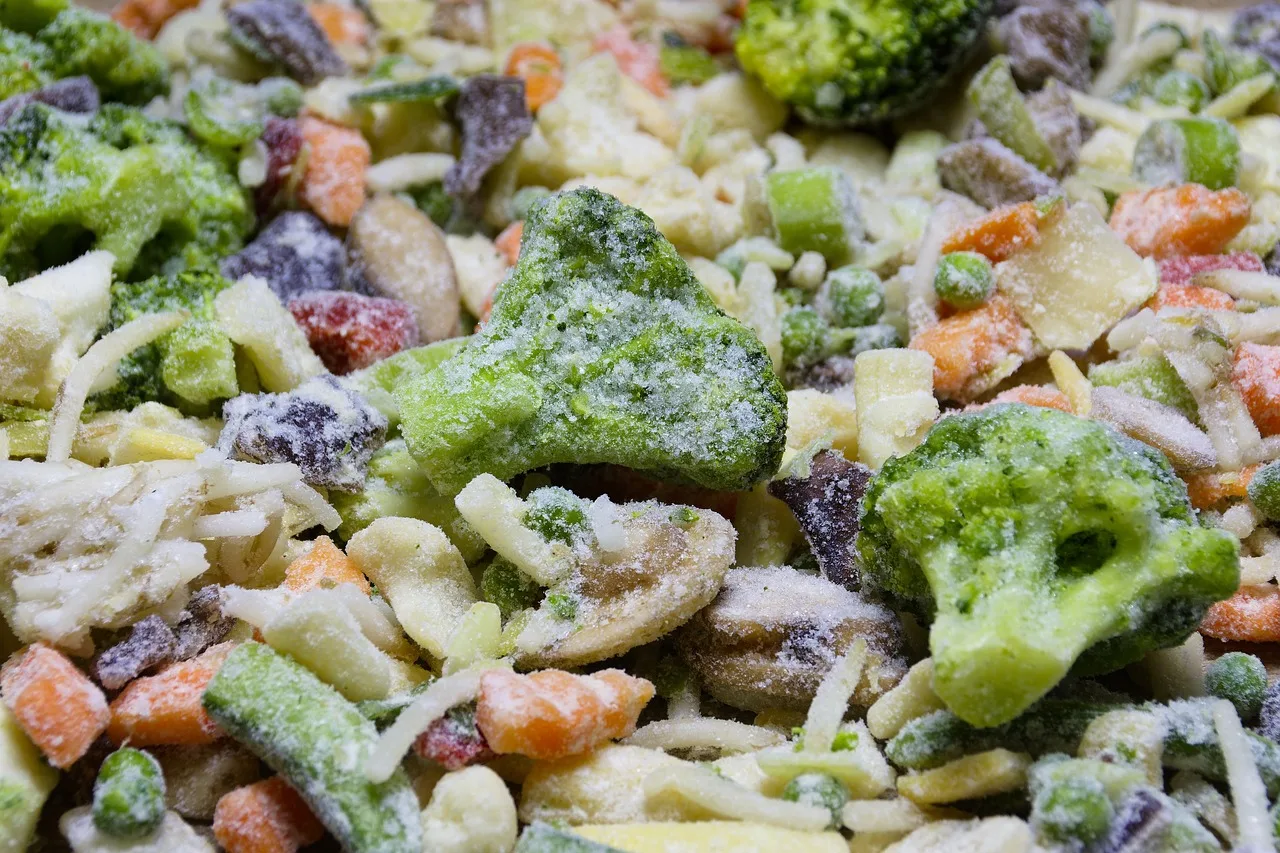It is believed that plant fruits that have been frozen lose some of the vitamins they contain. We decided to check if this is actually true.
Many Internet users are interested, is there benefit from frozen vegetables, fruits and berries. Some even suspectwhat are they products there may be harmful for health. This topic is very popular among service visitors questions And answers. Users are also discussing it social networks. Some portals about nutrition writethat frozen vegetables lose their nutritional properties and taste.
First of all, you need to decide what fresh vegetables, fruits and berries are. If we are talking about those fruits that have just been picked from the garden or plucked from the bush, they will certainly be healthier than those that have been frozen or stored for some time in any other way. The same goes for farmers' markets, where fruits that are in season and picked a few hours earlier are available. As for vegetables, fruits and berries sold in stores, which were delivered from another region or stored in warehouses for several months since last season, the content of vitamins in them raises questions.
Some vegetables before freezing pass blanching process (they are immersed in boiling water for several minutes). This is done to kill germs and preserve the color and texture of the vegetables. As a result, some of the antioxidants and other beneficial substances gets lost, although the same thing happens when vegetables are stored for a long time at room temperature or in the refrigerator. Fruits and berries are not blanched before freezing, but sometimes ascorbic acid or sugar is added to them - this does not affect the vitamin content, but sugar-containing “freezing” may not be suitable for those who are watching calories.
In 2007, scientists from the University of California (USA) compared vitamin content in fresh, frozen and canned vegetables (broccoli, carrots, green beans, green peas and spinach). It turned out that, for example, fresh spinach, after lying for seven days at a temperature of 20 ° C, completely loses the vitamin C it contains (at a temperature of 4 ° C - 75%). Moreover, when frozen, the loss will be only 30% of this substance, and spinach can be stored in such conditions for a whole year. Of all the samples studied, only broccoli retained vitamin C better when stored in the refrigerator than when frozen. The same scientists found outthat the content of vitamin E, minerals and fiber remains virtually unchanged when frozen.
Scientists from the University of Chester (UK) studied content of vitamins and other beneficial substances in fresh and frozen blueberries, raspberries, peas, green beans, corn and cauliflower. They concluded that nutrient content tends to be higher in frozen produce than in fresh produce that has been stored for more than three days after harvest.

To similar conclusion a group of scientists from Italy and the Netherlands came. They compared the nutritional value of fresh fruits with those that had been blanched and frozen. It turned out that frozen zucchini, asparagus and green beans have a content of nutrients similar to fresh ones, and beans and zucchini were even superior to unprocessed ones in this indicator.
The higher vitamin content of frozen foods may be due in part to the fact that vegetables and fruits imported from another region or country are usually harvested unripe - this way they ripen during transportation and do not spoil. At the same time, the fruits manage to accumulate the maximum amount of vitamins precisely at the moment of ripening. If they were pulled out of the ground or torn from a branch ahead of time, then the amount of vitamins in them will initially be lower than it could be. For freezing, vegetables and fruits, on the contrary, are picked at the peak of ripeness and frozen relatively quickly, so even taking into account processing, they often contain more useful substances than fresh ones on store shelves.
US Centers for Disease Control and Prevention (CDC) recommend include fruits and vegetables in the diet, with special emphasis placed on the fact that it does not matter what they are - fresh, frozen or even canned.
However, an important factor in the quality of frozen vegetables, fruits or berries is the correct storage. If such foods were thawed for some reason and then re-frozen, they will still be safe to eat, but the process of loss of nutrients stopped by freezing will also resume when defrosted. Since it is impossible to know exactly how the packaging was stored before it hit the shelf, it is also impossible to be sure of the high quality of the contents.
Thus, the greatest amount of useful substances is contained in fruits picked from the branch at the peak of ripening, and they must be eaten immediately in order to receive all the vitamins and biologically significant substances. If by fresh vegetables, fruits or berries we mean those that are sold unprocessed in the store, then in this case frozen ones may be healthier. Firstly, due to the need to maintain presentation during long-term transportation, such fruits are usually collected unripe (that is, they initially contain less useful substances than they could have). Secondly, during long-term storage at temperatures above zero, the vitamin content is reduced. Fruits for freezing, on the other hand, are usually picked at the peak of ripeness, and low temperatures help preserve the nutritional value of fruits and vegetables. However, all this is true subject to proper storage conditions, which a simple consumer will not be able to find out about before opening the package.
Cover photo: pixabay.com
Half-truth
Read on the topic:
- Is it true that fruit juices are as harmful as soda?
- Is it true that foods labeled “organic” are healthier than conventional foods?
- Is it true that sea or Himalayan salt is healthier than table salt?
If you find a spelling or grammatical error, please let us know by highlighting the error text and clicking Ctrl+Enter.






